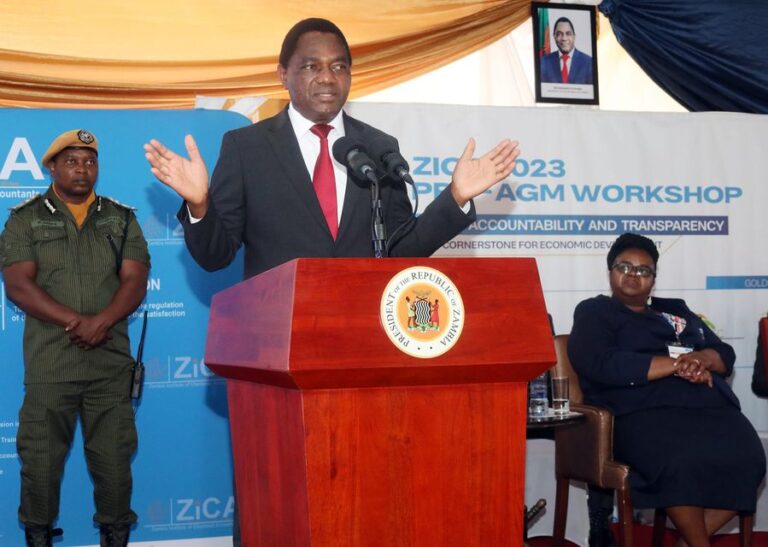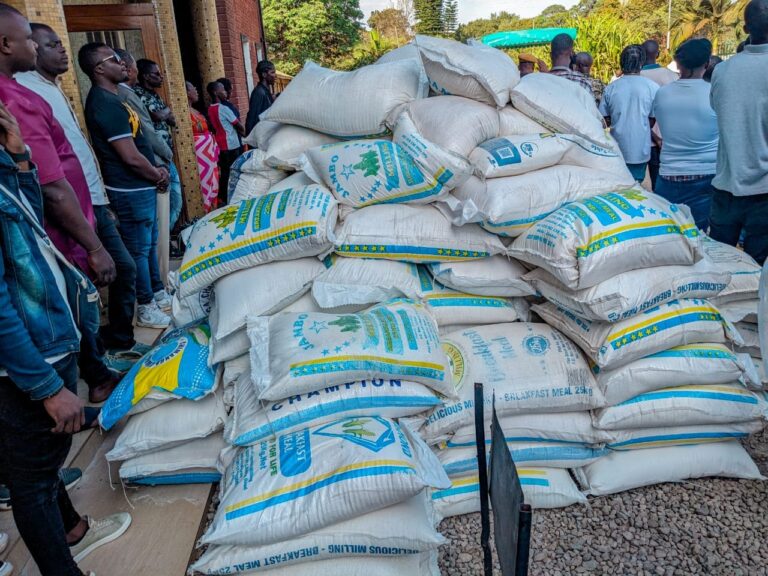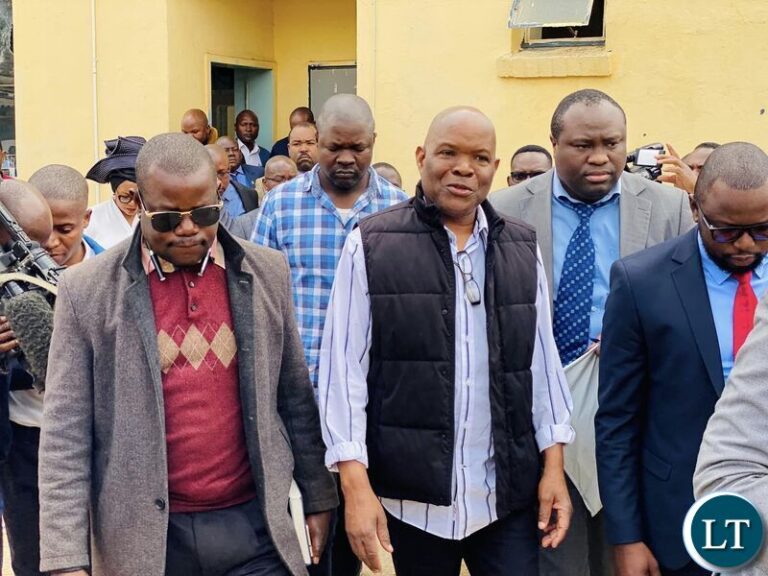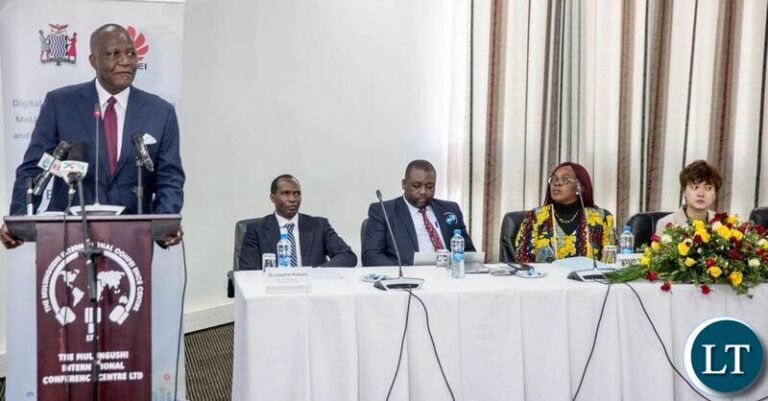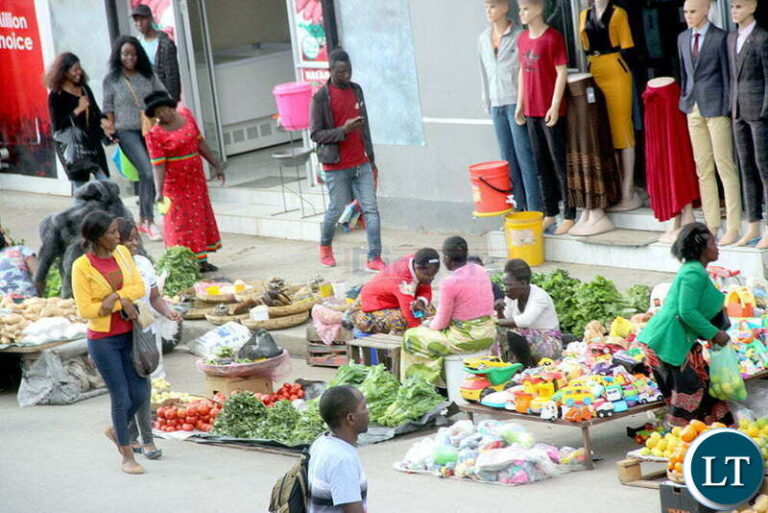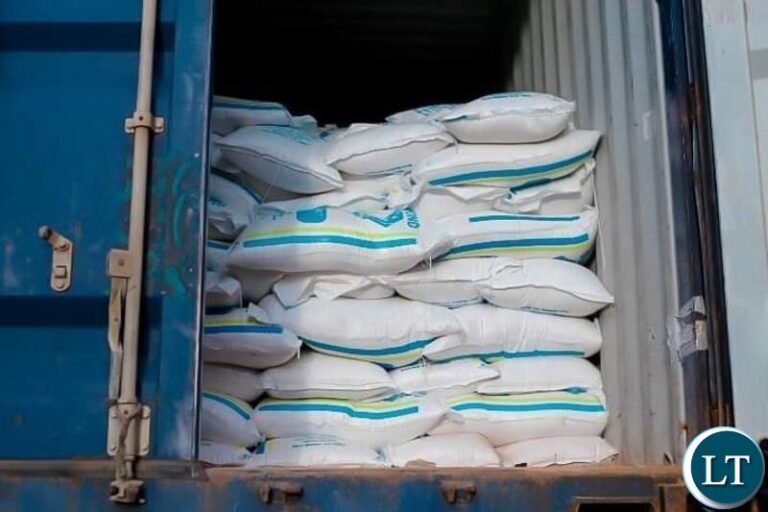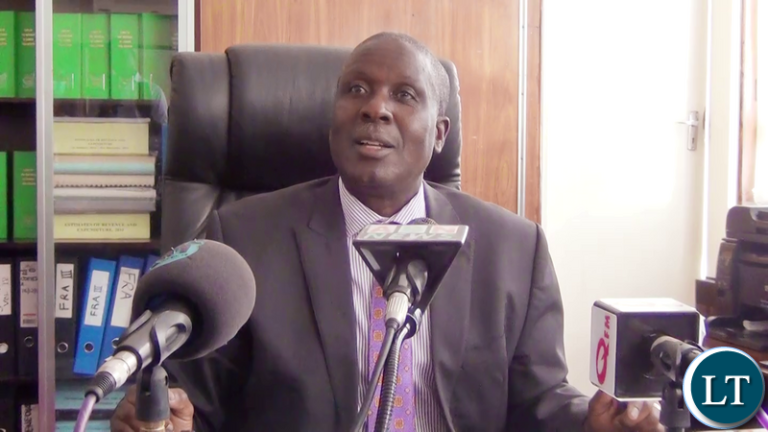In order to generate power in a plant, the dominant method used involves using fuel to heat water, which gives rise to pressurized steam. The vapour produced is then harnessed to give rotary motion to turbines in the plant. As the turbines turn, their kinetic energy is connected to a generator, which changes it into electrical energy. The generator is ultimately connected to transformers and electricity cables, as they channel electricity into the power grid infrastructure. Dominant heating fuels used are, coal, oil, gas, and also nuclear. There are also other sources of power such as hydro-electricity, tidal waves, solar and wind, which do not use heating fuels. However, those remain less in capacity, when compared to the output of thermal (heat based) power plants.
Currently, the world’s electricity generation mix is dominated by coal, which has a 36% stake. In the case of Zambia, however, about 85% of electricity generation capacity, is from hydropower. That a starkly an uneven figure, in comparison with other energy sources. Nevertheless, nuclear is gaining prominence around the world, and stands at approximately 10% of the aggregate power generation, with over 400 Gigawatts of capacity. This first, of a two-part series, therefore, outlines the elementary issues associated with nuclear power, such as; cost, advantages and disadvantages. The next issue will provide detail on Zambia’s policy direction regarding nuclear energy, with suggestions on how the country can utilize its milestones, so far, in order to add much needed new power online.
Cost and choice of scale
Large nuclear power plants are the standard model used in nuclear energy technology. They vary in size from 1000 MW to 4000 MW. On the other hand, there is a smaller alternative, known as the Small Modular Reactor (SMR). SMR’s are built to produce between 100 MW- 600MW of electricity. The choice between a large plant or an SMR depends on factors such as, affordability, location of the plant and speed with which the plant should be brought online (provide electricity). Large nuclear plants, have a higher capital expenditure requirement than their alternative (SMR’s). Huge plants can cost as much as $7000/ kW (or $7 billion for 1000 MW). The OECD Nuclear Energy Agency’s (NEA’s) 2020 capital cost estimates, of building a conventional nuclear plant ranges from $2157/ kW in South Korea to $6920/ kW in Slovakia. For China, the value was $2500/kW or only $2.5 billion per 1000 MW. The differences in cost are dependant on the country’s available skilled personnel, technology for fabrication, government’s experience in handling nuclear projects, etc. On the other hand the smaller SMR’s can be as low as $3000/ kW ($3 billion for 1000 MW). This is not much different from the cost of establishing a hydropower plant. For instance, Kafue Gorge lower hydro power plant, was built to provide 750 MW, for $2 billion. A basic calculation using proportional determination, shows that, 1000 MW of electricity would cost $2.25 billion (using Kafue lower hydro’s cost). Small Modular Reactors have an additional advantage in that, they provide room for expansion or scalability. This means that, after installing a 100 MW nuclear reactor, another 200 MW can be added at the same site, in the future. Additionally, since they (SMR’s) take up less space, there is location flexibility, whereby they can be installed almost anywhere. This is not the case for large plants which depend on availability of large amounts of space. Large nuclear plants also need massive amounts of water for cooling. Resultantly, they are typically established close to an ocean or sea, where water can be drawn nearby, using pipes or other applicable technologies, from the water source to the plant. This however, is not the case with SMRs as they can operate even in arid regions. The higher upfront cost of a large reactor does have an upside to it, as it translates to scale efficiencies, through the full life of the plant. In essence, it means that, by the end of its life cycle (40- 60 years), the larger plant would have produced more efficient and affordable power than the SMR. To put it another way, this also means that, nuclear plants are expensive to build but cheap to run. This is not only true when comparing the scale and efficiency of nuclear plants of different sizes, but also when comparing with other energy sources (coal, gas and oil, etc). For empirical figures on overall energy costs, over a plant’s lifetime, the U.S. EIA, in 2017, published the electricity cost per unit, of nuclear plants to be brought online in 2022, comparing them with other energy sources. The numbers were; 9.9c/kWh (advanced nuclear), 5.7-10.9c/kWh (natural gas), 12.3c/kWh (coal), 14.6c/kWh (offshore wind), 18.4c/kWh (thermal solar). It is vital to note that, the calculations include both capital expenditure for construction and operational costs. This clearly outlines that nuclear energy is cheaper. Additionally, The Canada West Foundation (an independent public policy think tank), posits that total fuel costs of a nuclear power plant in the OECD are typically one-third of those for a coal fired plant. Understanding that coal is the least expensive fossil fuel, shows that, nuclear is therefore, outstandingly cheap.
Pros
Apart from affordability, nuclear energy is a consistent source of electricity supply. This is unlike renewables such as hydro-electricity, solar and wind. In fact, one of the major problems with renewables is that they are not reliable. They cannot consistently supply households and industries with power, in the absence of back up from more reliable sources such as coal or nuclear power plants. Proponents of solar and wind power, tend to either be ignorant or conveniently forgetful, such that they place this glaring issue in the background, when they advocate for renewables. Solar power drops when its night time or when the sun is not out and is dependent on storage mechanisms such as batteries, which store energy during the day. On a commercial scale, it is not capable to provide a consistent supply of electricity for industries and households, based on available storage mechanisms. This is the same for wind, tidal energy, and other renewables.
The fuel used in nuclear plants is made up of enriched uranium, otherwise known as U-235. To describe the potency of uranium, it is vital to compare it with other sources. It is reported that a tonne of coal produces 8 Megawatts of energy. On the other hand, only 1kg of uranium is understood to produce 24 000 Megawatts. As a result of the density of energy in enriched uranium, it is packaged in pellet form, and sometimes in small pebbles which can fit easily into an adult human’s hand. Resultantly, the fuel can be stored at the plant, in batches that can last for months, or sometimes, years. Logistical costs of moving nuclear fuel are therefore limited and movement is more efficient, owing to the physical size of the fuel. Contrastingly, due to the relative inefficiency of coal (compared to enriched uranium), plant operations require meticulous planning and massive amounts of physical space, to ensure that there is consistency in power supply. The downside is that transport costs are higher and reliability of power can be altered when the merchandise is exposed to elements such as snow or rain. The further that the power plant is from the energy source, the more complex these problems become. This implies greater challenges for energy importing nations, such as those in Europe, in this regard.
Another advantage of nuclear power is that, building the plant takes thousands of workers, huge amounts of steel, concrete and components, etc. It takes more industrial resource inputs than a coal, wind or solar plant. This implies that there will be improved economic activity even from the construction phase. Additionally, local cement and steel manufacturing companies will register windfall profits as their products are a crucial input in the establishment of the plant. Since Zambia has local producers and distributors of both cement and steel, the revenue earned by these industries is re-circulated in the economy.
Additionally, nuclear energy supports jobs and further economic growth, once the plant is completed. In 2017, South Africa’s Eskom, commissioned a study which reported that, from 2012 to 2016, economic activities supported or stimulated by the Koeberg Nuclear Plant (in Cape Town), unveiled around $3.9 billion in economic activity. 1786 direct jobs were created during the same period, with an additional 35 000 indirect jobs, each year.
Furthermore, growth and depth of the nuclear industry also drives advances in healthcare, food safety and agriculture, etc. Pests, soil productivity and diseases such as cancer can be controlled and resolved with the aid of nuclear technology.
Cons
Nuclear has been paused, rejected and refused by some countries for various reasons. Economically, not many nations can afford the exorbitant upfront costs, or capital expenditure, required to set up a nuclear plant.
Apart from cost, a nuclear plant takes a lot of time to build. This does not work well for countries or industries which need to add extra capacity to the grid, in the short term. On average, a standard reactor takes between six to twelve years to construct. Even the SMR (Small Modular Reactor), can take up to five years to build. Therefore, any country in need of nuclear generation, needs to plan strategically in order to serve demand in a timely manner, without compromising economic growth, due to missing project timelines or a mismatch of demand growth and the completion of the power plant.
Waste disposal is a highly contentious issue in nuclear technology. Residue from reactors is highly radioactive and can remain toxic for hundreds of thousands of years, according to scientific determination. Public outcry and protests against disposal of nuclear waste close to residential communities, is not uncommon, especially in Europe. Nevertheless, to Africa’s advantage, the continent has massive land space, which provides for a number of alienated places to store and dispose of the waste. To put the size difference in perspective, the distance between London and Rome, is similar to that between Cape Town and Pretoria, for instance. To add to that, South Africa alone, is about the same size as Western Europe. Zambia, though smaller, has expansive land space.
Through the years, some notable nuclear reactor accidents have been reported in other countries, giving rise to fears that the technology poses a safety risk, in the case of plant malfunction. One of the largest nuclear accidents on record is the Chernobyl nuclear disaster, of 1986. The accident happened when safety procedures were not adhered to and one of the reactors overheated until it melted the barrier which was meant to contain heat and radiation from the plant. Resultantly, radiation was released into the atmosphere, causing deaths, diseases and abnormalities in humans, animals and plants. The consequences of the accident have been so grave, such that, work to add more protective layers to the reactor and clean up radioactive waste, is ongoing, to this day. However, after Chernobyl, the isolated accidents around the world, have been kept under control with no injury to people or loss of life. In fact, the technology used to manage nuclear plants has since rapidly advanced, just as other technology (cell phones, computers, TVs), throughout the years.
Concerns also exist that, the same technology used to make nuclear energy, can be easily adapted and rerouted to manufacture nuclear weapons. This can become more unsettling when the weapons end up in the hands of terrorists, as lives may be lost, needlessly. On the other hand, the fact that existing nuclear weapons can be repurposed and used to provide fuel for power plants, may be nuclear energy’s ultimate redemption.
Kevin Tutani is a political economy analyst- [email protected]


